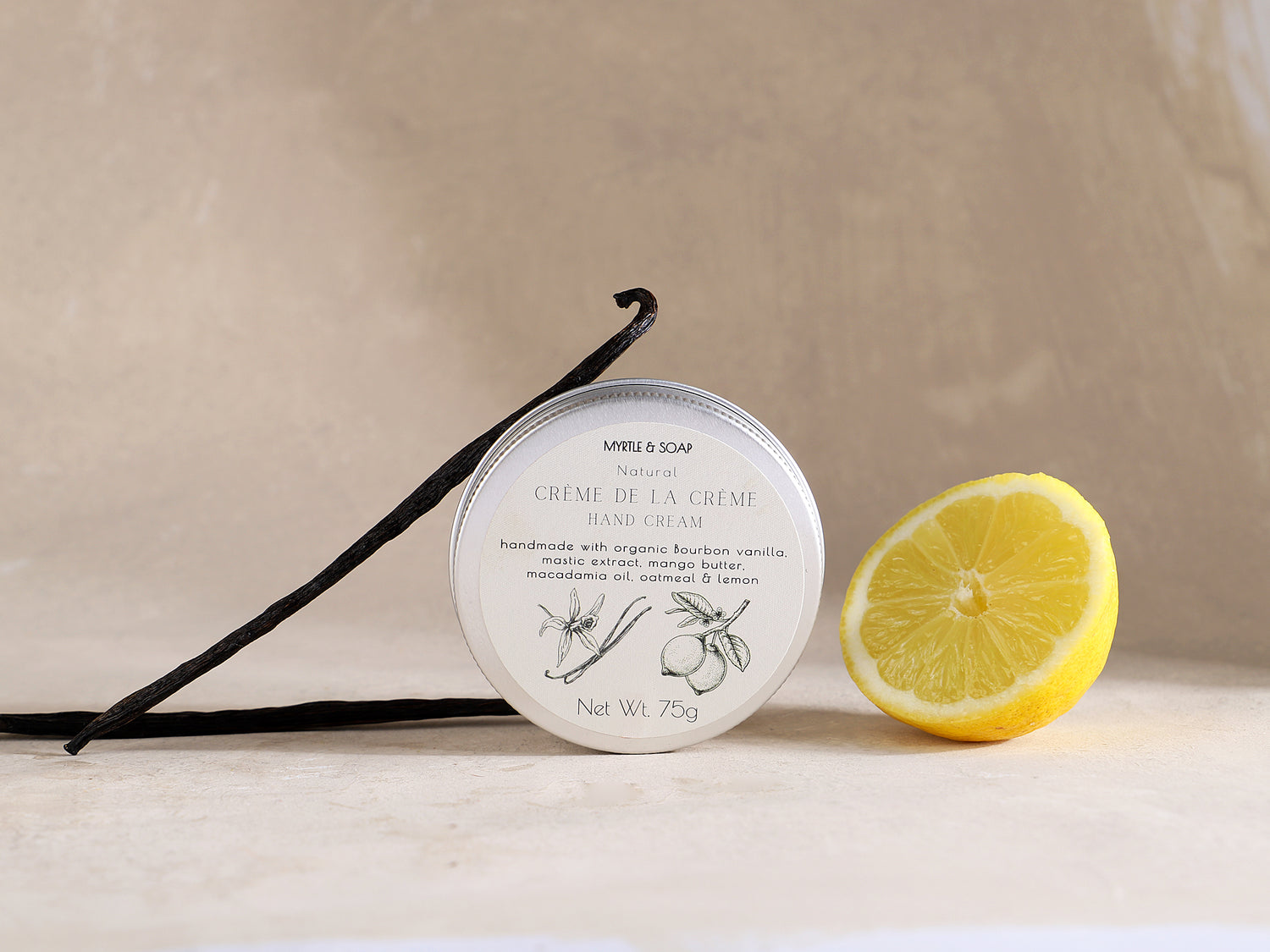I still remember when I was a little girl, I couldn’t wait to go home from school so I can sit with my family at around 5pm while they had their coffee. My dad would make traditional Greek coffee on the stove and my mum would cut three pieces of the fresh baked cake she made earlier. Sometimes it was chocolate, sometimes carrot and sometimes lemon. But it was always delicious.
No matter how hard I look, I still haven’t found a cake that tasty in any supermarket or big chain shop. And it makes me wonder. What makes my mother’s handmade baking so much better than any industrially made product out there?
Simply put, me.
Did I surprise you? Yes, it was me, my own perception, my own experience with my mum’s cooking that made me think they are the best. My brain simply associated it with happiness.
Some people say that a maker like me should be adamant about handmade creations being superior in every way. But the truth is, that is not always the case.
It depends on the product
Not all handmade products are better. It depends on the nature of the product whether it will be of higher quality manufactured by one person or a few people, or when mass produced. And if handmade products are aesthetically better, they might not be value for money. Handmade furniture, jewelry and anything else that is considered a form or artisan make, might be valued according to our perception.
It depends on the creator
And that brings me to the person responsible for the product. The creator. The manufacturer. Not everyone that sells handmade soap or clothes is a skilled, experienced person. As not everyone who paints paintings is a great artist. But if they are, then the creation is absolutely magical.
It depends on how “green” they are:
Most handmade productions are more environmentally sustainable, especially when the products and ingredients used for its creation have a clear history of where they were sourced, and if the sourcing was ethical.
It depends on the job market:
If the factory that creates the product, provides job opportunities to countless people from the area, then it certainly contributes to the livelihood and economy of the local community. What usually happens though, is that in order for companies to cut cost, they move their production abroad, using cheap labour and no longer supporting the economy of the area. Handmade products, if done properly, they give skilled people the opportunity to earn money for their creations, and also a chance for them to give back to the community.
It depends on the price:
A lot of people seem to think that the fact that handmade products cost more is a bad thing. Yes, if your budget is tight, you will shop for less expensive things. But we have come to see the value in the “work of art”. And of course we are willing to give more when we can see that it will significantly improve our quality of life.
It depends on your mood
We all want to have something unique to own. We want our purchases to make us happy. And with all the burdens we have in life, it’s absolutely our right to.
It depends on the batch
Each batch, each product of that batch is unique. When products are handmade they become snowflakes. They reflect the personality of their creator.
I don’t like to really compare handmade vs mass production. They are so different. And if someone wants to buy a factory made product, they can.
But to me, personally, handmade creations have a life of their own. They are unique, special and they not only reflect the creator’s soul, but also the personality of the buyer. They are a personal experience, a feeling that begins with our deepest desires and coming alive with the tremendous skill of those who dare to work day and night to give us a product that we'll use and love.

